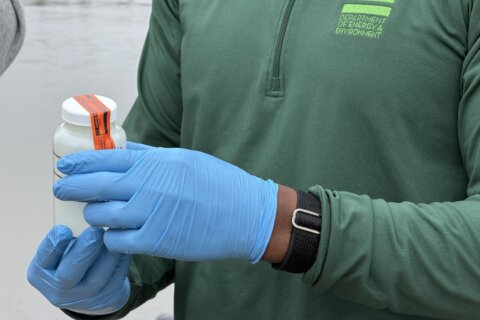There were many lessons learned during the pandemic. Two local universities say one of them is that the District doesn’t have enough healthcare workers who know how to use cutting-edge data and technology.
The University of the District of Columbia and Howard University are teaming up to fill the gap with a homegrown workforce that is prepared for the next healthcare emergency.
Professors created a program called PHIT4DC. It allows almost anyone, from high schoolers to working healthcare professionals, to enroll in public health informatics and technology courses, said Dr. Mary Awuonda, the director of the Telepharmacy Center at Howard University.
“The program is offered in several pathways,” she said. “We have a no-wrong-door model for entry. So, we can make sure we have an impact in D.C.”
The program is designed to attract students from Wards 7 and 8, who will focus their training on patients and residents in that area. Participants will train healthcare providers to understand a patient’s lived experiences and help those residents navigate healthcare information systems, Awuonda said.
“Health care now is in the community,” Awuonda said. “The lack of direct engagement is what led to a lot of the poor outcomes Wards 7 and 8 saw over the pandemic. Frontline workers naturally know that a connection is important and know how to inform them.”
Dennis Means, a pharmacy student at Howard University, took a 15-week informatics course earlier this year. He was able to learn from other students in the class who had different majors and work experiences.
“In the majority of my classes, I’m with other pharmacy students,” he said. “But this class gave me an opportunity to team up with professionals outside of pharmacy. It was a unique experience that I haven’t gotten in any other class.”
The program provides a career option in healthcare for some students or a way to beef up their resume for others, said Charletta Washington, PHIT4DC program director at UDC.
“When we’re talking about our communities in D.C., especially our underrepresented communities, we know that we need people we can trust,” Washington said. “So, if and when the next public health emergency comes along, we know that we have a workforce that’s ready to engage the communities that are sometimes left out of the conversation.”
To learn more about the program, go to PHIT4DC.com.







